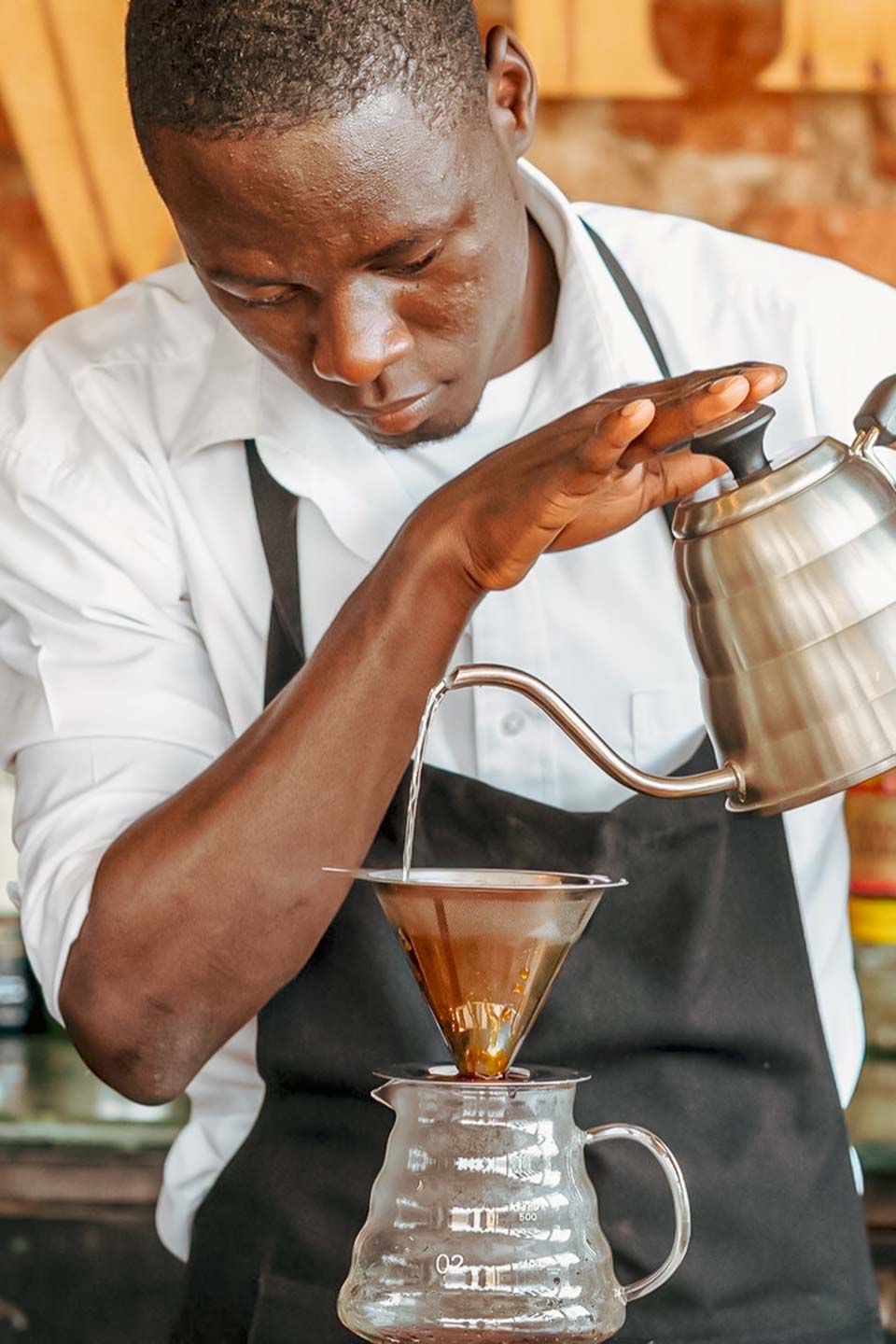
From an Origin to the World: Reshaping Coffee Narrative from Uganda
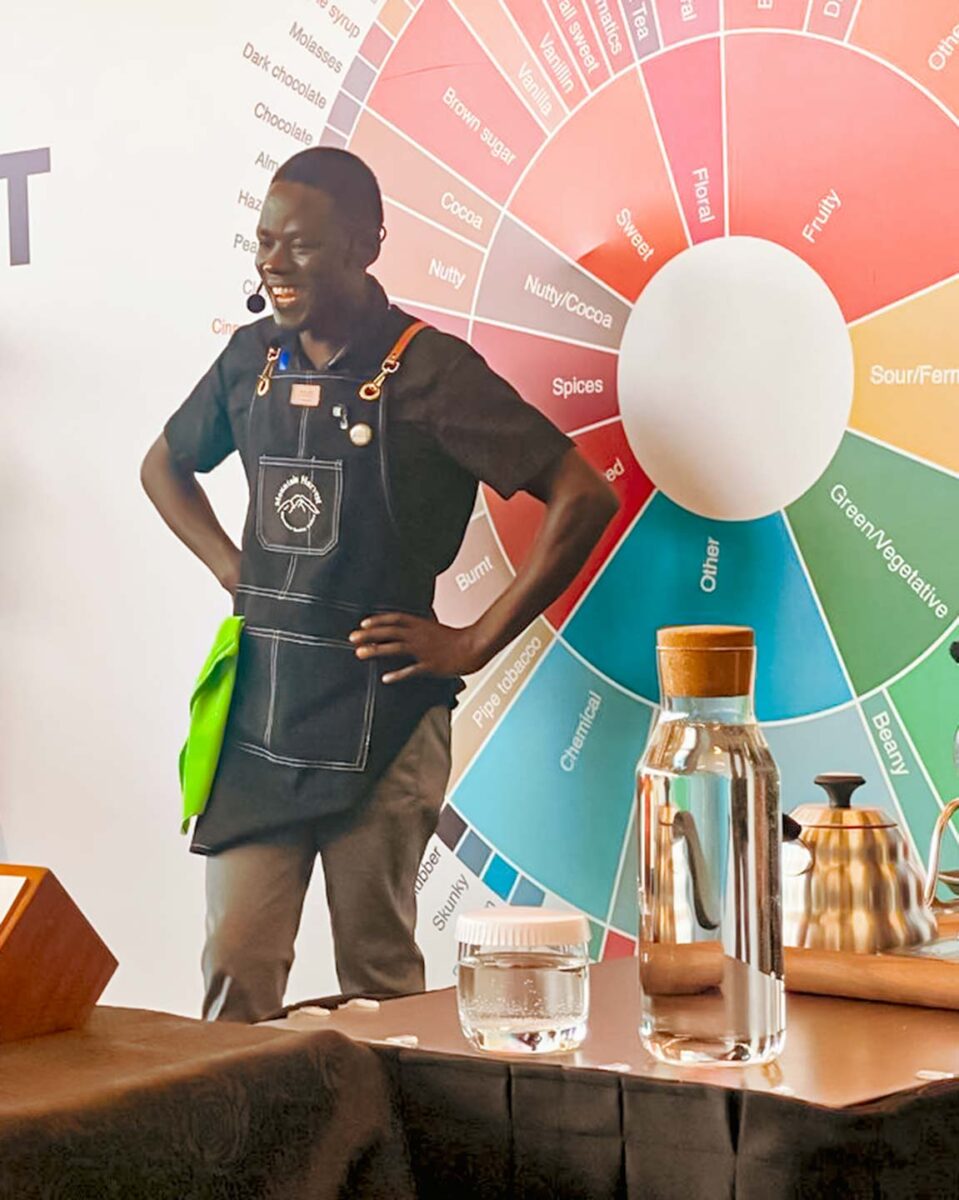
Based in Uganda, Mountain Harvest is committed to consistent production of high-quality specialty coffee with a goal of selling their green beans at more than double the market price. Ever since their founding in 2017, the exporter has been working with about 800 smallholder farmers. The company runs various projects, including regenerative farming, where they restore soil to a suitable condition for coffee production.
Ibrahim Kiganda, 27 years old, is a processor and quality control manager at Mountain Harvest. He won Africa’s largest barista competition in February 2023, becoming the first Ugandan to ever clinch a berth for the World Championship, which will be held in Greece in June. But even before his accomplishment, Mountain Harvest had already established itself in the Ugandan coffee industry, with their achievements including four consecutive wins in a national green coffee quality contest. Ibrahim’s feat added to the attention the company has been getting from at home and abroad.
Ibrahim says that at Mountain Harvest, he has a perfect environment and strong support from the team. His win was as much a product of his passion and hard work as it was a culmination of Mountain Harvest’s dedication to talent development. Nico Herr, Mountain Harvest’s Chief Operations Officer who coached Ibrahim in the lead-up to the competition, says that his victory is a result that he deserves, adding that Uganda still has a lot of hidden talents waiting to be discovered. We spoke to Ibrahim and Nico to discuss what his success means to Mountain Harvest and the Ugandan coffee industry.
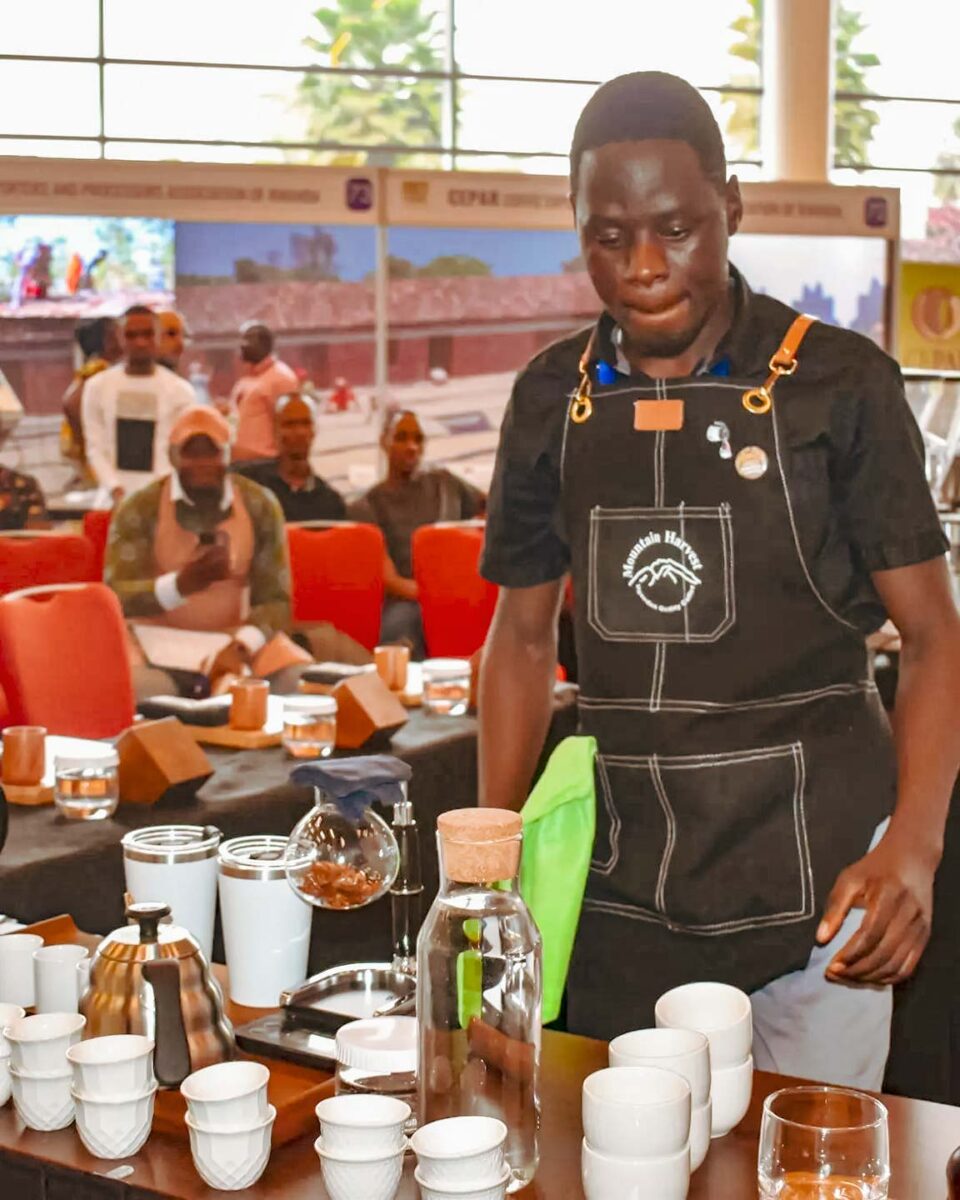
Providing opportunity and environment
In February 2023, Ibrahim was in Rwanda’s capital Kigali, basking in joy as his name was called out as the winner of a barista championship. The competition, hosted by the Africa Fine Coffees Association, was contested by baristas from across the continent, and was Ibrahim’s first appearance on the international stage. And on that day, he became the first Ugandan ever to win the top prize. Nico and his other co-workers were equally excited at the result as they celebrated Ibrahim’s feat. During his demonstrations, Ibrahim presented two Mountain Harvest coffees, including an anaerobic coffee processed at his own mill. Some of the judges described his coffees as “new and exciting.”
“We did a lot of dialing in and pairing with milk, trying to come up with the best recipes,” Ibrahim recalls. “There was a lot of pressure going into the competition, but I just focused on what I had to do to perform as best I can. Me being a competitive person may have played a factor in winning.”
One of the techniques Ibrahim showcased at the competition is freeze distillation. This method is said to draw maximum flavor and sweetness from milk by condensing it. This approach has become a trendy go-to at barista competitions in recent years.
“We hoped to highlight a possibility that goes beyond the normal milk we enjoy. We are trying to explore how we can create a new drink by pairing coffee with ingredients around us. After all, the coffees we use for competitions have to be competitive and unique.”
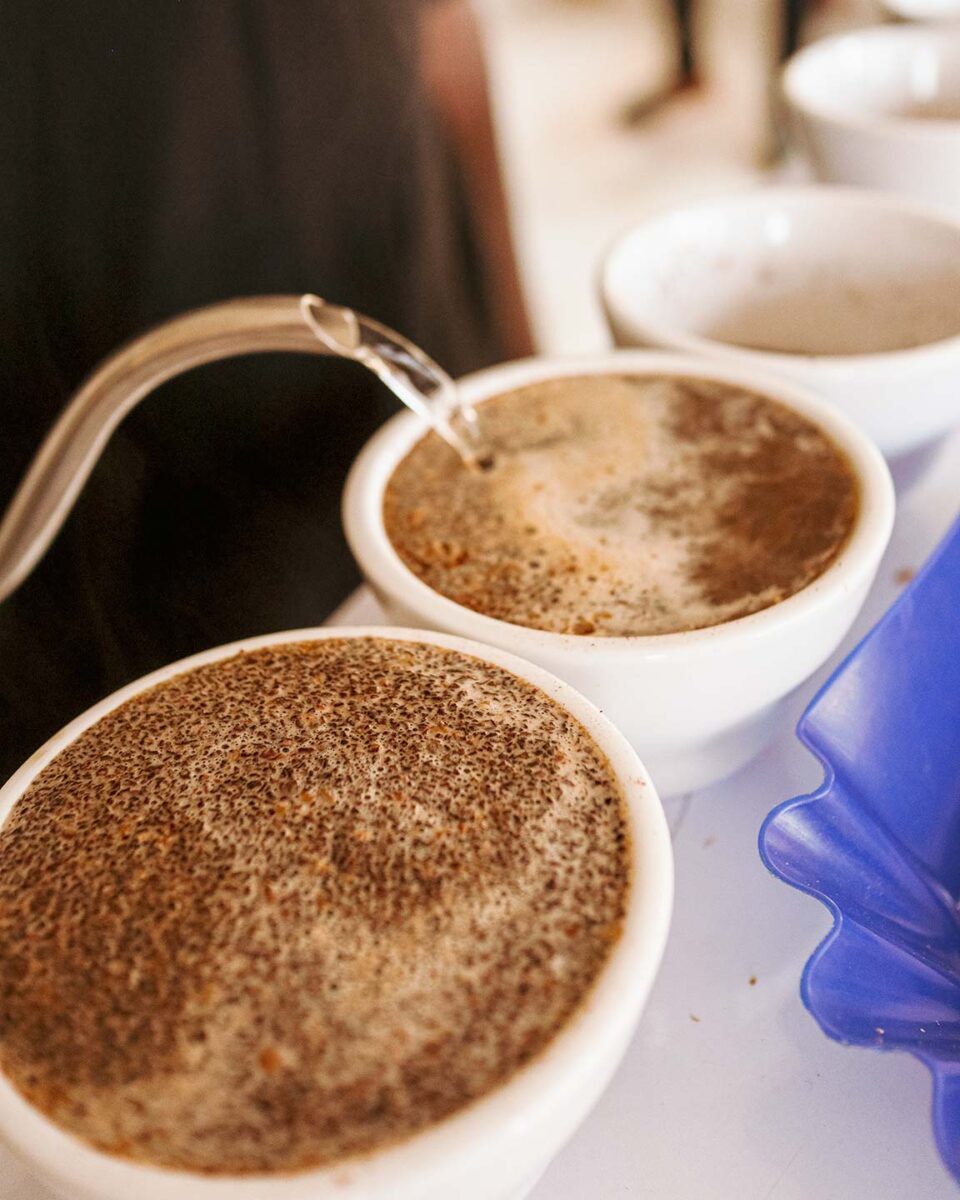
Leading up to the competition, Nico, who helped Ibrahim with his preparation, secured a space above their office and put together a makeshift training facility. This was helpful because Mountain Harvest is not close to cafes where he could rehearse his presentation. The training room also allowed them to squeeze in a practice time out of a busy production phase.
Ibrahim: “The company provided me with necessary resources from the initial trial stage. They gave me their full support. Then later on, the data team also came in, helping me to learn how to collect data and analyze it for future reference.”
Uganda is Africa’s second largest coffee producer, only after Ethiopia. But there is no domestic institution catered to coffee professionals, so a lot of Ugandans have limited access to knowledge and information about coffee. Mountain Harvest recognizes this issue, and has been accepting student interns at some of its departments. If they excel in the program, the company offers them a position or refers them to other businesses.
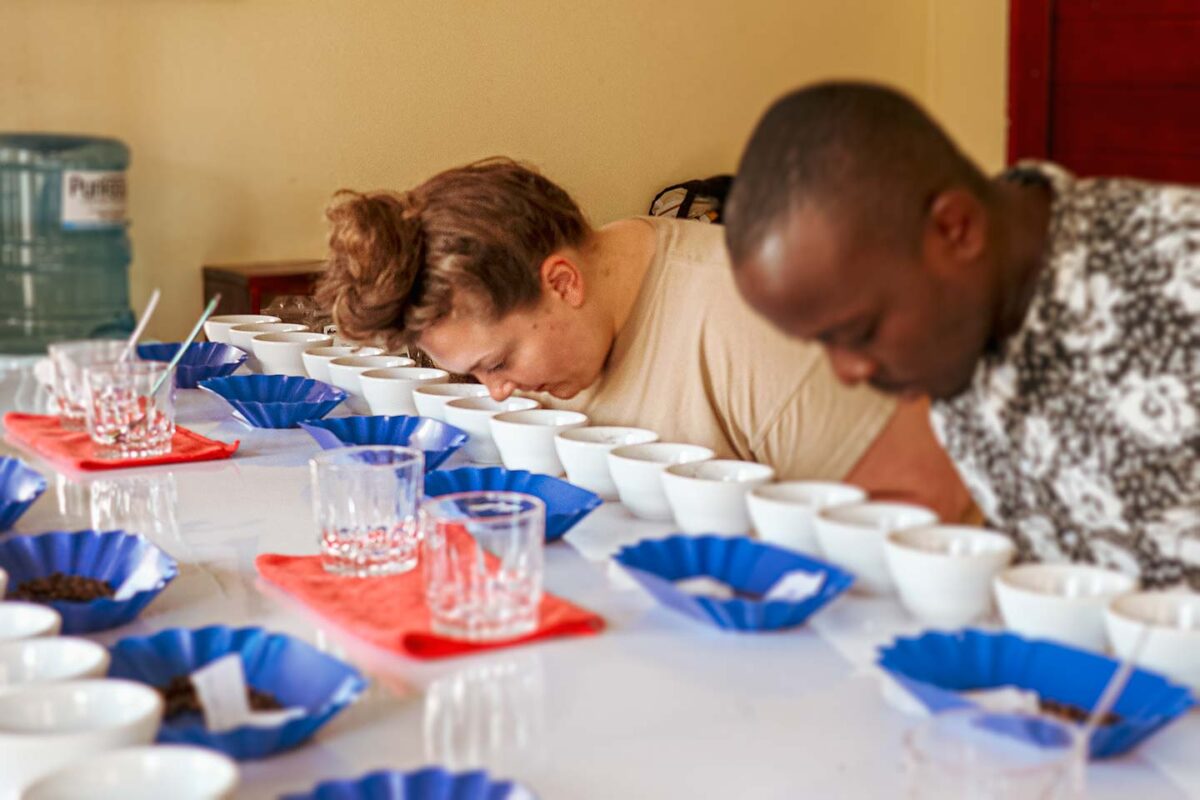
Nico: “Even if you have the passion to learn, you can hardly do anything with it unless you have the opportunity. A lot of Ugandans have been offered supposed opportunities, only to see them fall through. So when they are finally presented with an opportunity, they go head first into it with excitement.
Ibrahim is a fine example of that. He has worked hard to seize an opportunity and become competitive. He has a dream of becoming a coffee instructor, and it will definitely come true. I believe that we can change what people expect of Uganda if we not only spread excellent Ugandan coffees but highlight innovative talents like Ibrahim.”

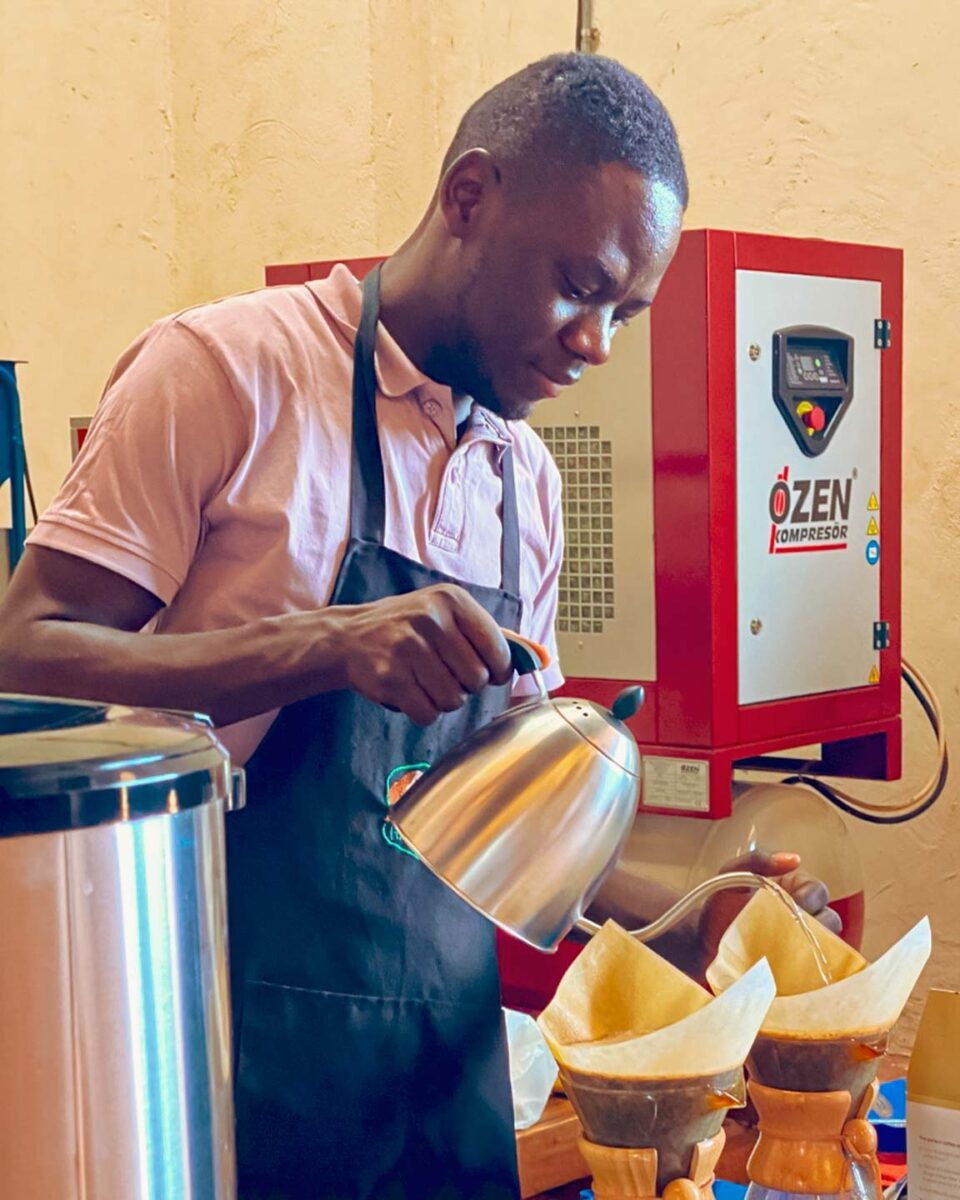
Reframing coffee narrative
Ibrahim’s first exposure to coffee dates back to his university days. When he visited a friend’s room, he was offered a drink. Not knowing what it was, he sipped it anyway, and that night, he was so alert he couldn’t fall asleep. Wondering if he was given a drug or something, he went back to ask the friend the following morning. As it turned out, all that excitement of the previous night was caused by none other than coffee.
After this experience, Ibrahim joined his university’s coffee club. His barista skills were already coming into bloom during this period. One year, he won a second-place in his university’s barista contest, qualifying for the national championship. There, he finished fourth, and again came in fourth in his next outing, too.
“Passion, research and an innovative mind – these are what drives me forward. Competitions are a prime chance for me to showcase the fruit of my daily hard work. I always try to figure out how I can present a unique flavor and stand out among other competitors. Through competitions, we can have deeper discussions about coffee and pursue the best possible way to represent coffee.”
Although Ibrahim started his coffee career as a barista, his interests naturally began to shift toward processing and quality control as he delved deeper into the intricacies of coffee. In fact, he was so curious about coffee production that he once tried making a honey-processed coffee with a farmer friend, using knowledge and information he gathered from internet searches. The product didn’t turn out very well, but nonetheless it led to his first contact with Mountain Harvest.
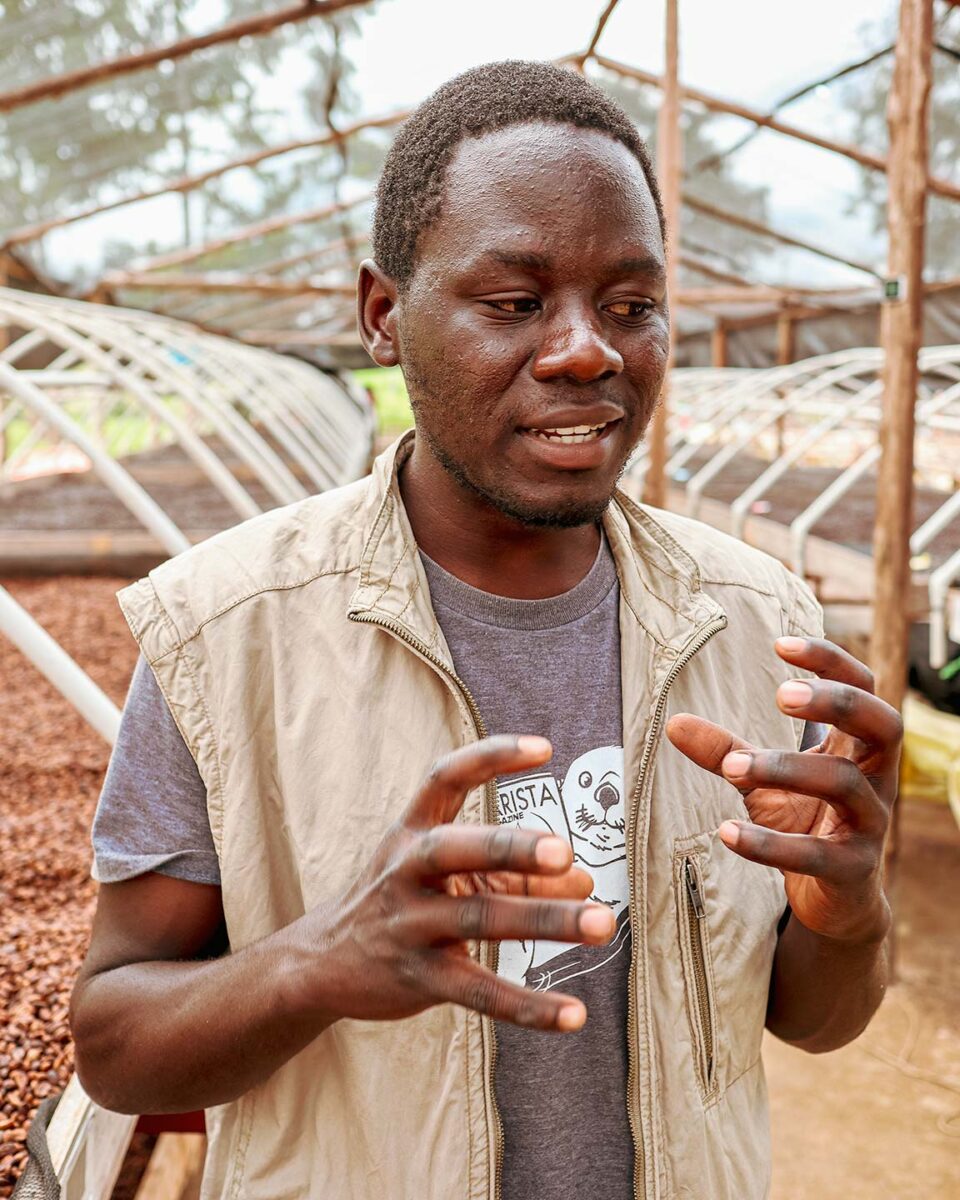
Through the introduction of a friend who was already working for Mountain Harvest, Ibrahim received an invite to tour their facilities. There, Ibrahim witnessed a whole new range of processing and drying techniques he had never seen in action, and had a chance to cup some of their best coffees on offer. After graduating from university, he took a barista and quality control position at a coffee shop in the capital Kampala. But after a while, thanks to the new connections he made at Mountain Harvest, he ended up working for the company. He is now charged with processing and quality control.
“Mountain Harvest gives each of their employees a chance to hone their skills and create something new. They give me a chance to leverage my expertise in quality control, barista experience, and scientific background. On top of that, Mountain Harvest is result-oriented. So quality always comes first. That’s what I like about the company.”
Typically, most participants and top competitors in the World Barista Championship are from consuming countries. Nico believes that when young people like Ibrahim begin to represent producing countries at international competitions, they can transform an industry that has tilted heavily toward consuming nations.
Nico: “Ibrahim has a unique perspective as a person born and raised in a coffee origin. For people like him, coffee has been part of their lives since birth. Part of their blood. So his narrative can be powerful on a different, more intimate level.”

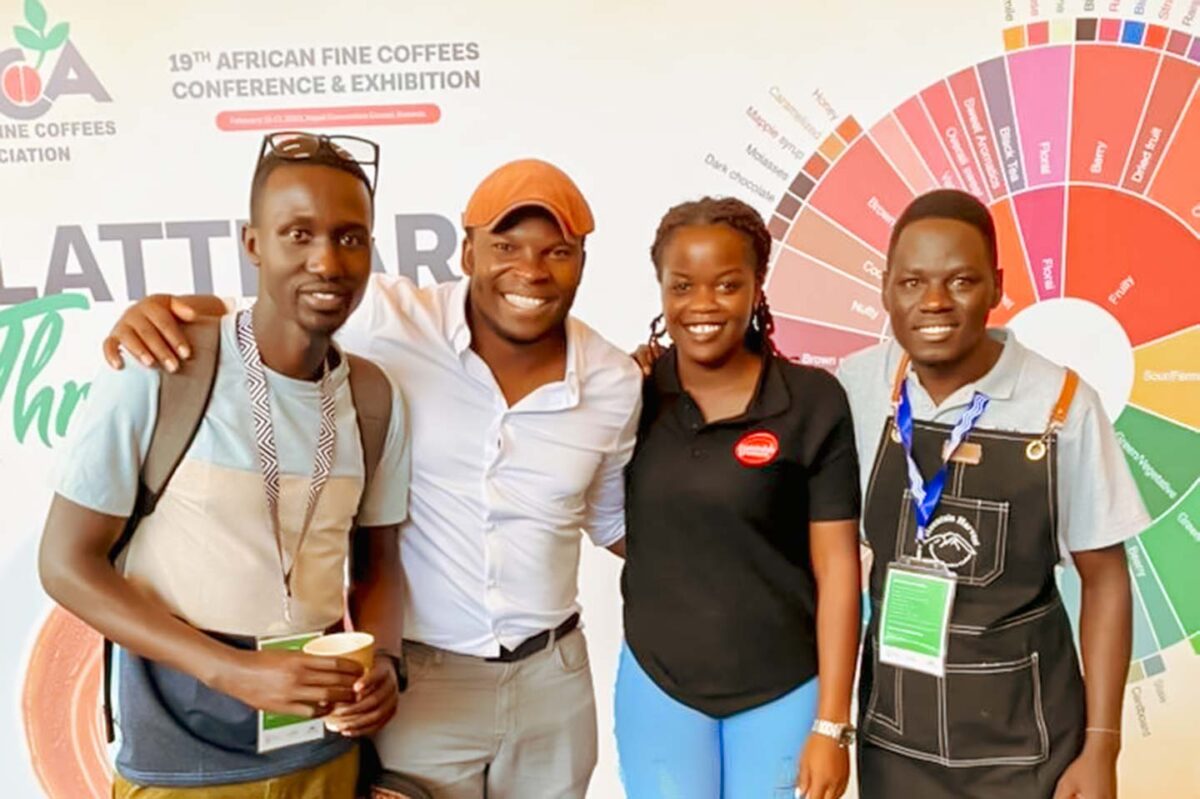
Platform for talent development
Ibrahim wasn’t the only person from Uganda who was successful at the African barista championship; other Ugandans also finished in top places. Historically, Uganda has faced challenges producing and exporting specialty coffee due to insufficient infrastructure. However, things are beginning to change. Over the past few years, the Uganda Coffee Development Authority and other government agencies have invested in varietal improvements and provided technical support to farmers. In addition, momentum is growing for public-private partnerships to promote the coffee industry concertedly, including by hosting barista contests and assisting those interested in Q grader and other licenses.
Nico: “When we get more funding and support in the next five years, we’ll have a more formalized educational space at Mountain Harvest. So more people will be able to work in processing or quality control positions. Mountain Harvest needs to be a platform to unlock hidden talents in Uganda and give them the opportunity and resources to be competitive not only in the Ugandan space, but in the industry as a whole.”
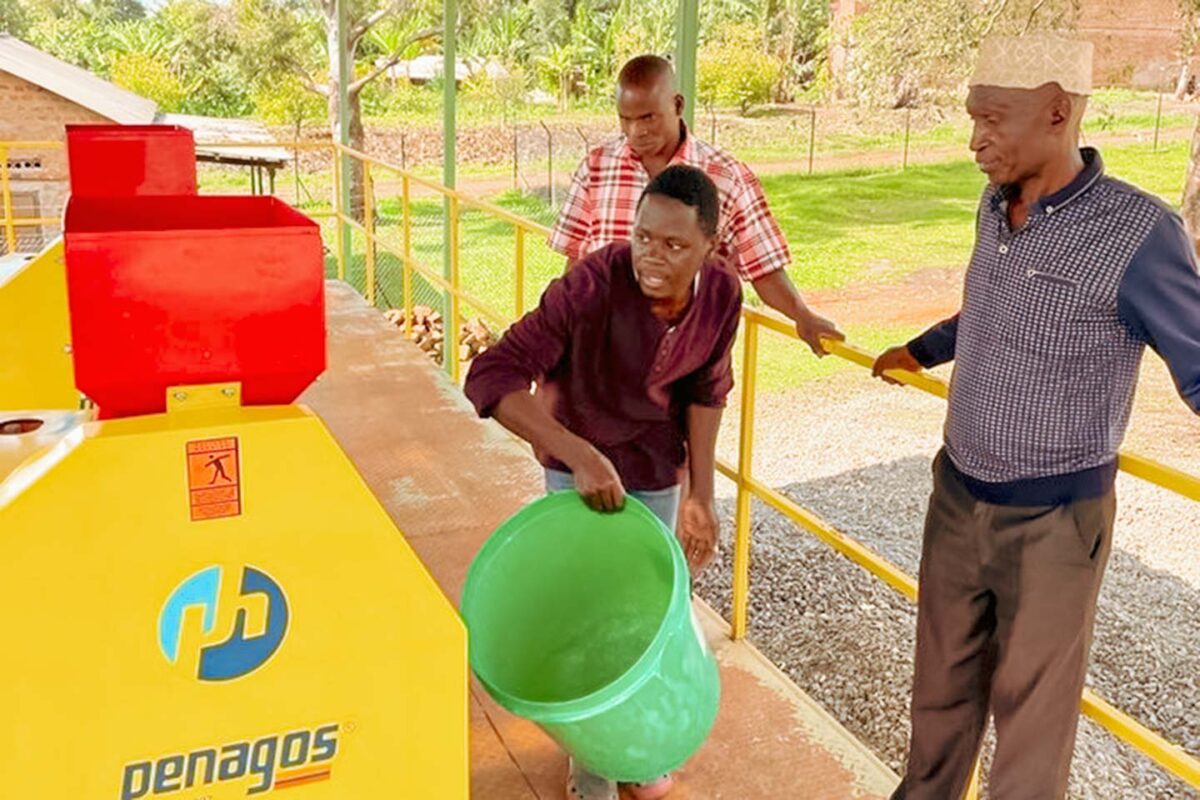
Indeed, Mountain Harvest has been making grassroots efforts to bolster Ugandan people’s competitiveness and understanding of coffee excellence. For instance, the company makes concerted educational efforts at their micro-washing stations. These stations are located in isolated communities, surrounded by demonstration gardens. They allow the young Ugandans to watch and learn how high-performing coffee professionals care for their gardens, pick cherries at their peak quality, and use tools and technologies not often seen on the Ugandan farm. They also send Ibrahim and other experts to these gardens to provide training for local farmers strategically. By doing so, Mountain Harvest meets farmers where they are financially and helps them enter the market with a higher quality product for higher payment. With time, they will become farm experts while young innovative coffee professionals will be coffee processing experts for a more sustainable coffee business.
They also send Ibrahim and other experts to these gardens to provide training for local farmers strategically. By doing so, Mountain Harvest meets farmers where they are financially and helps them enter the market with a higher quality product for higher payment. With time, they will become farm experts while young innovative coffee professionals will be coffee processing experts for a more sustainable coffee business.
Nico: “What we are doing is reinvigorating people’s excitement about coffee. Mount Elgon is certainly our base of research, learning, and innovation. Even if your parents are farmers, you don’t necessarily have to follow the traditional path of taking over their farms.
When young people get exposed to new angles of the coffee industry, maybe they can find what best suits them. They may not want to be a farmer, but they can be someone who inspires farmers. Innovation starts at the farm level. People like Ibrahim are the future of Uganda.”
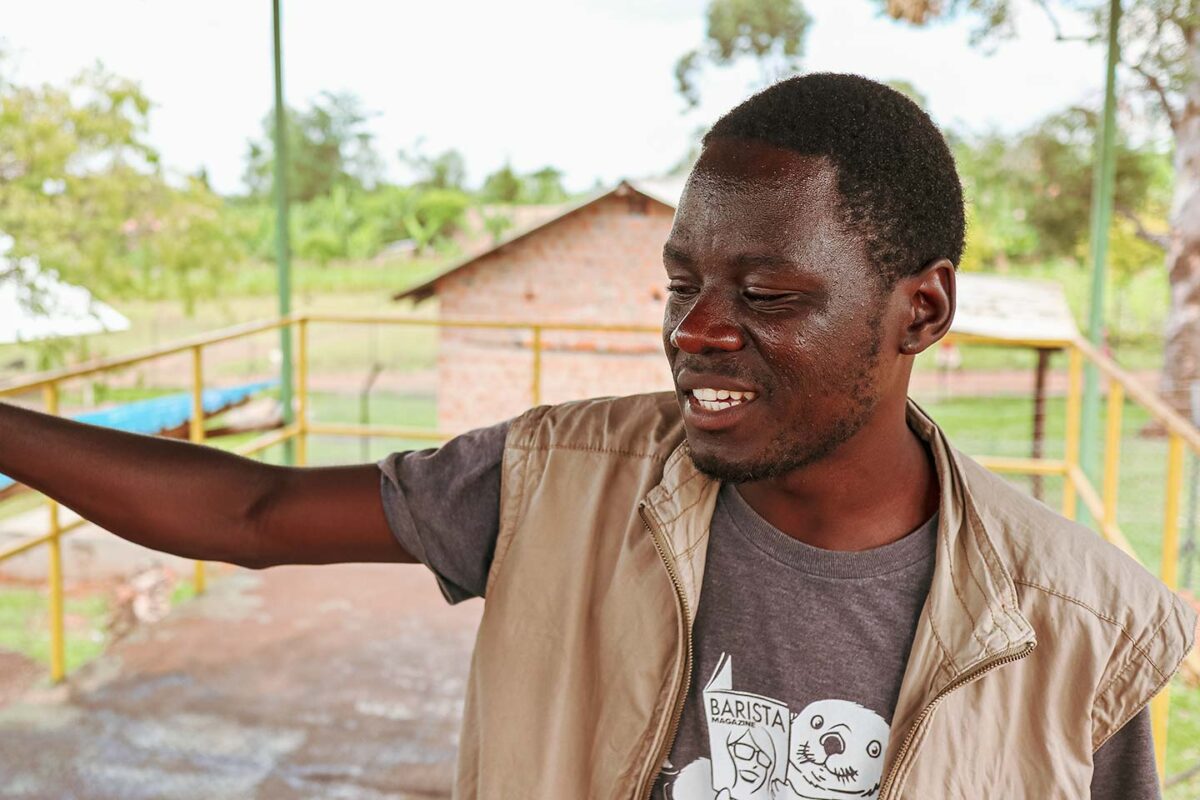
Now Ibrahim is looking ahead to the World Championship, which will be held in Athens in June 2023. Eight years ago, he was amazed by a processing method called carbonic maceration, introduced by Sasa Sestic, the 2015 world barista champion. Now, it’s Ibrahim’s turn to leave it all out there and showcase Ugandan coffee on the global stage.
Ibrahim: “I know the world championship is no joke because it gathers national champions from all over the world. And I do feel pressure because I am representing not just Ugandan coffee but my country as a whole.
But I am from a coffee producing nation. I know where coffee is produced, what the soil is like, and how the trees grow. So it’s probably easier for me to talk about coffee than for people from consuming countries. Even if you wake me up one morning and tell me to talk about coffee, it’s easy – because I’ve lived with it.”
Text: Takuya Takemoto








